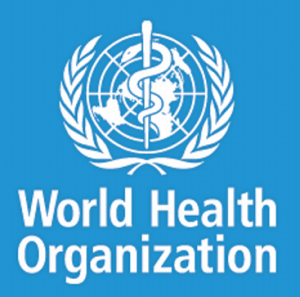WHO urges Ghana to shift tobacco cultivation to food crops
 The World Health Organization (WHO) has called on the Government of Ghana and shift tobacco cultivation to food crops in line with articles 17 and 18 of the WHO Framework Convention on Tobacco Control (WHO FCTC).
The World Health Organization (WHO) has called on the Government of Ghana and shift tobacco cultivation to food crops in line with articles 17 and 18 of the WHO Framework Convention on Tobacco Control (WHO FCTC).
The framework enables the country to enact legislation, develop, and implement suitable policies and strategies, which allows market conditions for tobacco farmers to shift to growing food crops that would provide a better life for themselves and their families while protecting the environment and the health of the people.
Dr Francis Chisaka Kasolo, the WHO Country Representative, in a speech read on his behalf by Dr Angela Ackon, the Technical Officer of Quality Safety, said by doing this, the country would be growing food, which the population needed, not tobacco.
He made the call at the launch of the 2023 World No Tobacco Day organised by the Food and Drugs Authority (FDA) on the theme: “We Need Food, Not Tobacco.”
World No Tobacco Day (WNTD) is observed around the world annually on May 31st. The day provides an opportunity to highlight the dangers associated with tobacco use and exposure to tobacco smoke.
It is an occasion to renew advocacy for effective policies to halt the tobacco epidemic and its impact on individuals, societies, and nations.
The WHO estimates that tobacco is grown as a cash crop on an estimated four million hectares of land in more than 125 countries, clearing an estimated 200 thousand hectares each year in the process.
Given the state of the global food supply today, tobacco is grown on small amounts of arable land that could be used to grow more food crops. Due to the increased livelihoods of desertification in tobacco farmlands, the practice has resulted in the death of thousands of trees and had a worse impact on ecosystems.
According to the Tobacco Atlas, more than 6,700 Ghanaians die annually due to tobacco-related illnesses, of which 66 per cent of these deaths are individuals under age 70. Also, about 18 per cent of Ghanaian lives are lost to exposure to second-hand smoke. Tobacco-related deaths account for three per cent of all deaths in the country.
Dr Kasolo said the theme thus emphasised the need to raise awareness about alternative crop production and marketing opportunities for tobacco farmers and encouraged them to grow sustainable, nutritious crops.
He said the WHO was working with member states and other partners to assist over 2000 farmers to turn to alternative crops.
The Country Representative urged the Government to support tobacco farmers to switch to alternative crops by ending tobacco growing subsidies and using the savings for crop substitution programmes to improve food security and nutrition.
The launch saw a quiz competition among basic school pupils focused on tobacco-related facts, the benefits of a healthy diet, and the risk associated with tobacco use with Nima Basic School One taking the first place, followed by St Kizito Catholic Basic School and Institute of Islamic Studies.
Alhaji Hafiz Adams, the Chief Director of the Ministry of Health, representing the Minister, said Ghana had taken giant steps in tobacco control, which included the Protocol to Eliminate Illicit Trade in Tobacco products, the inclusion of tobacco-specific provisions in the Public Health Act, passage of the Tobacco Control Regulations, among others.
He called on stakeholders to support the Government to develop suitable strategies and an enabling market condition for the tobacco-growing farmers to shift to growing food crops.
Mr Seth Seaneke, Deputy Chief Executive Officer of the FDA, said the annual campaign would be marked by a year-long activity to sensitize the public on the harmful effects of tobacco use.
He said the campaign covered nationwide educational programmes, including health walks and enhanced social media presence of anti-tobacco-related messages.
Source: GNA
